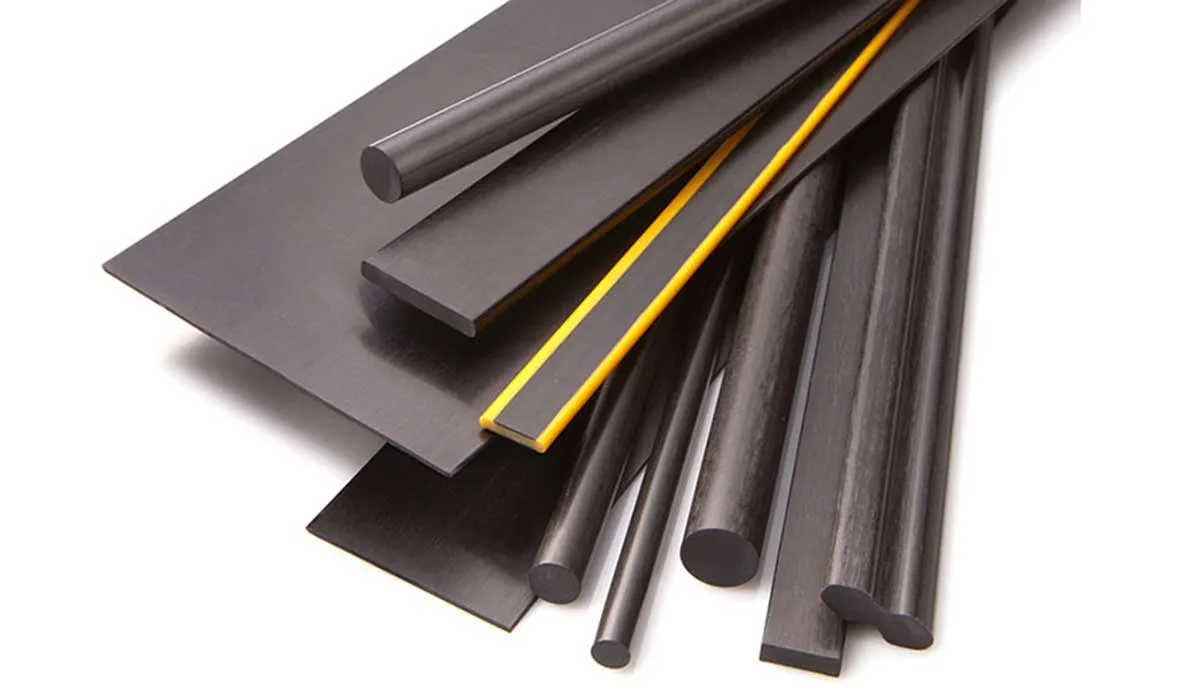Carbon fiber reinforced polymers (CFRP), or carbon fiber composites, are made by combining carbon fiber with a resin, such as vinyl ester or epoxy, to create a composite material that has higher performance properties than the individual materials alone. They are stronger, lighter and more durable alternatives for many applications traditionally made with wood or metal. With a typical tensile strength of 400 – 500 ksi and average density of 1.55 g/cc, CFRP composites can be up to 10 times stronger and 5 times lighter than steel.
Carbon Fiber Composites
Strong, lightweight alternative for metal and wood applications
What is Carbon Fiber?
Carbon fiber, sometimes referred to as graphite fiber, is formed by bonding carbon atoms together to form a long chain. Carbon fiber filaments can be woven to form a fabric or take permanent shape as a composite material when combined with a resin. Carbon fiber can also be chopped or utilized as a reinforcement for long fiber thermoplastic (LFT) composites depending on the application need.
Technical Properties
CFRP materials are highly regarded for their superior strength-to-weight ratio, corrosion resistance, stiffness and durability. Carbon fiber’s high tensile strength and low density enable light weighting and make it an excellent alternative to heavy metals, like steel. Due to the inherent corrosion resistance of thermoset resins, CFRP products do not rust or corrode and in turn have a longer product lifetime than typical metal materials.
Uses and Applications
Carbon fiber composites can be found in consumer goods, like archery bow limbs and sail battens. They are also present in automotive body panels, wind turbine blades and orthopedic external fixators. Transportation, consumer, healthcare, energy, infrastructure and construction are all industries that benefit from the advantages of carbon fiber composite materials.
Application Highlight
CFRP products serve an important role in the building and construction industry – specifically in bridge support, support beams and concrete reinforcement. The superior strength, low weight, corrosion resistance and ability to adhere to concrete make carbon fiber composites an excellent material for infrastructure applications that require strength and durability. Compared to traditional steel used in concrete reinforcement and infrastructure applications, carbon fiber composites offer higher tensile strength, lower density and more versatility in end-use applications.
Avient has a portfolio of carbon fiber composite products within our Glasforms™ and Gordon Composites™ product lines. These CFRP materials consist of thermoset continuous fiber polymer rods, bars and laminates used in a variety of applications that require superior technical characteristics.
For more details including technical information on Avient’s carbon fiber composite products, download the product bulletin.
